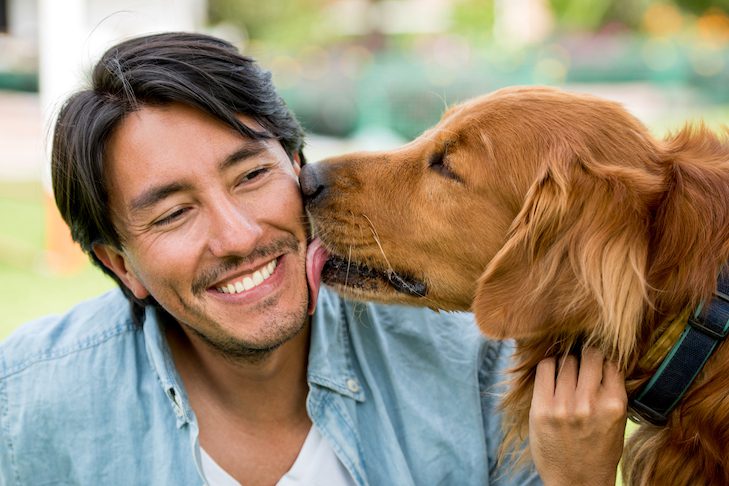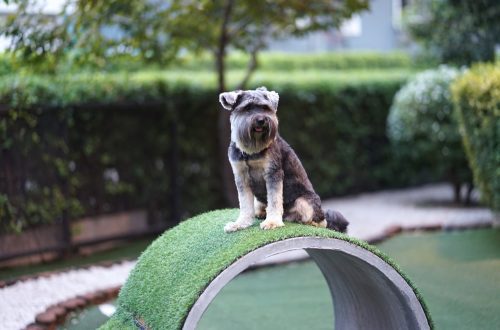
How to be the best dog owner
Congratulations to the new dog owner! It doesn’t matter if you have just made the decision to get a dog or a furry ball of happiness has already appeared in your house. We know that you can be the best owner your puppy could ever want. These ten tips will help you make your dog feel at home and safe in his new home.
Before she shows up
To become a good host, you need to start preparing even before the four-legged companion crosses the threshold of your house. These preparations will help ensure a smooth adjustment on moving day.
1. Prepare your home.
Prepare your home for the arrival of a pet – to do this, go around it and inspect everything at the level of the dog’s eyes. See if there is anything there that could be dangerous to her? Are there any valuable items that the pet can chew on? If there are, be sure to put them in a place inaccessible to the puppy. Use pet barriers to block off anything that could be dangerous to your dog, or isolate parts of the house where he shouldn’t be. Designate a safe place where she can hide if she feels uneasy. It can be an aviary, a room or an area outside the kitchen, fenced off with a barrier for animals.
2. Let’s talk about the roles and responsibilities of family members.
If you want to share the responsibility of caring for your dog among family members, determine in advance who will be responsible for feeding, walking, bathing, etc. If you have children, talk to them about the new family member you will have at home, and establish rules for handling it. If the children are small, they will first need to be taught how to handle the pet carefully, as well as always carefully observe their play.
3. Prepare your other pets.
If you already have dogs or cats, they should have all the necessary vaccinations. Provide a safe place for cats to escape from unwanted attention from a new pet, and find a way to separate other dogs until they get used to each other. If possible, get your current pets familiar with the new dog’s scent beforehand. Let them smell the thing that their future friend has slept on or played with.
4. Prepare everything you need.
Pets need more than just your love and affection to keep them happy and healthy. Be sure to prepare all the necessary dog items, including food and water bowls, a leash, toys, a bed, and grooming supplies. If you are planning to crate your puppy, prepare it for your dog’s first night in a new home. The Humane Society of the United States recommends carefully checking that there are no wires in the cage that could snag on the collar or paws of the animal. It should also have enough space for the dog to stand, turn and sit comfortably. Also, be sure to put a blanket inside for the puppy to sleep on, as well as a toy so he can keep busy when you’re not around.
5. Buy a balanced diet.
Naturally, you’ll want to feed your pet a complete dog food, but it’s still best not to change your dog’s food abruptly, as this can lead to stomach upset and discomfort. If possible, get a week’s supply of her current food from a shelter or breeder and gradually transition to the new food, adding a little each day for a week.
First days in your house
At this point, you have made all the necessary preparations for welcoming your new four-legged family member, but your work is not yet finished. These tips will help you be a great host during the first few days of your new puppy’s arrival in your home.
6. Introduce him to the environment gradually.
Let children and other pets get to know their new family member one at a time and under your close supervision. Talk to the children again, reminding them of the safe greeting and handling of the dog. Take the other dogs outside to get to know their new buddy in neutral territory, and give them plenty of time to sniff and look at each other. Keep the cats separate for the first few days, allowing them and the dog to sniff each other first through closed doors, then through a barrier or screen, before allowing them to meet face to face.
7. Visit a veterinarian.
Schedule your puppy for a routine checkup with your veterinarian as soon as possible and make sure he has all the necessary vaccinations. Your veterinarian can tell you about any health issues that your dog may be prone to due to its breed. He can also explain how to avoid certain diseases.
8. Make an identification tag.
If the puppy suddenly gets lost and tries to find his way home, an identification tag with your contact information will help him with this.
9. Establish a schedule.
Dogs are oriented to a strict daily routine, so the sooner you start accustoming a puppy to his new schedule, the better. Set a time for feeding and sleeping, and stick to that schedule. Show him where he can go to urinate and start teaching him to go for walks. If regular walks aren’t planned, start doing some other physical activity every day, even if it’s just a fetch ball game.
10. Start training as soon as possible.
Housekeeping, cage training, obedience training, and socialization are all things a young dog needs to learn, and the sooner the better. Older individuals may already be well socialized and trained to the toilet, but they still have to get acquainted with household expectations and rules. And if you decide to give your dog a new name, he will need to remember it and learn to respond as soon as possible for his own safety. There are many resources to help you properly train your pet, from books and videos on the Internet to lessons and classes with professional dog handlers. Whichever option you choose, it’s important to remember that consistency and patience are the keys to success. Don’t even start obedience training if you can’t practice daily.
Being a dog owner is a very responsible job. As big of a change as this is for you and your family, it’s important to remember that it’s also a very big change for your dog. The most important thing you can do for your new dog during this difficult time is to give him plenty of love and patience when you welcome him into your home. Keep this in mind, and by following our recommendations, you can become the best host your new four-legged friend could wish for.





